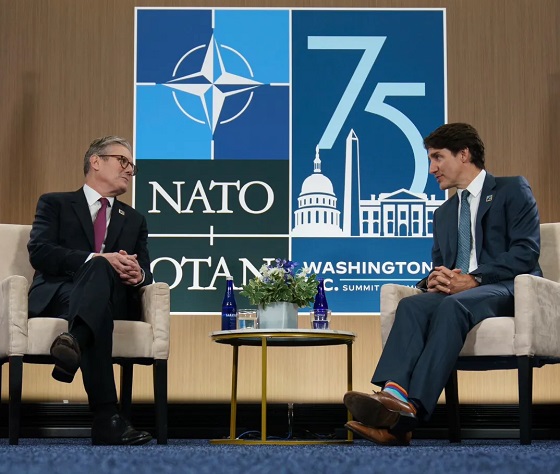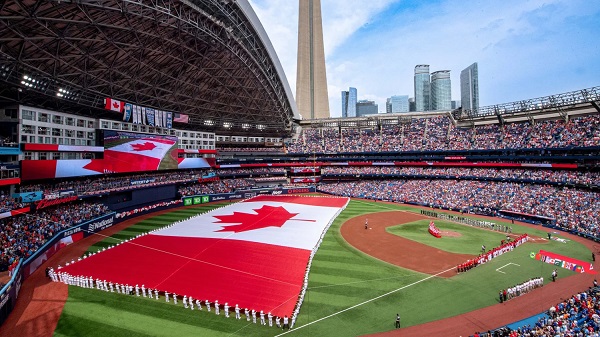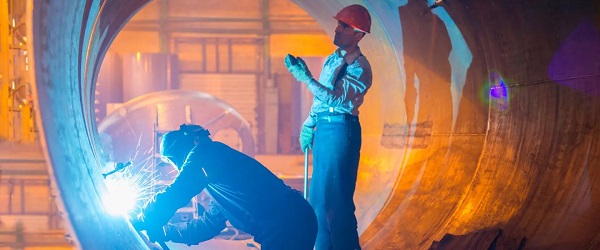Business
Carney poised to dethrone Trudeau as biggest spender in Canadian history

From the Fraser Institute
By Jake Fuss
The Liberals won the federal election partly due to the perception that Prime Minister Mark Carney will move his government back to the political centre and be more responsible with taxpayer dollars. But in fact, according to Carney’s fiscal plan, he doesn’t think Justin Trudeau was spending and borrowing enough.
To recap, the Trudeau government recorded 10 consecutive budget deficits, racked up $1.1 trillion in debt, recorded the six highest spending years (per person, adjusted for inflation) in Canadian history from 2018 to 2023, and last fall projected large deficits (and $400 billion in additional debt) over the next four years including a $42.2 billion deficit this fiscal year.
By contrast, under Carney’s plan, this year’s deficit will increase to a projected $62.4 billion while the combined deficits over the subsequent three years will be $67.7 billion higher than under Trudeau’s plan.
Consequently, the federal debt, and debt interest costs, will rise sharply. Under Trudeau’s plan, federal debt interest would have reached a projected $66.3 billion in 2028/29 compared to $68.7 billion under the new Carney plan. That’s roughly equivalent to what the government will spend on employment insurance (EI), the Canada Child Benefit and $10-a-day daycare combined. More taxpayer dollars will be diverted away from programs and services and towards servicing the debt.
Clearly, Carney plans to be a bigger spender than Justin Trudeau—who was the biggest spender in Canadian history.
On the campaign trail, Carney was creative in attempting to sell this as a responsible fiscal plan. For example, he split operating and capital spending into two separate budgets. According to his plan’s projections, the Carney government will balance the operating budget—which includes bureaucrat salaries, cash transfers (e.g. health-care funding) and benefits (e.g. Old Age Security)—by 2028/29, while borrowing huge sums to substantially increase capital spending, defined by Carney as anything that builds an asset. This is sleight-of-hand budgeting. Tell the audience to look somewhere—in this case, the operating budget—so it ignores what’s happening in the capital budget.
It’s also far from certain Carney will actually balance the operating budget. He’s banking on finding a mysterious $28.0 billion in savings from “increased government productivity.” His plan to use artificial intelligence and amalgamate service delivery will not magically deliver these savings. He’s already said no to cutting the bureaucracy or reducing any cash transfers to the provinces or individuals. With such a large chunk of spending exempt from review, it’s very difficult to see how meaningful cost savings will materialize.
And there’s no plan to pay for Carney’s spending explosion. Due to rising deficits and debt, the bill will come due later and younger generations of Canadians will bear this burden through higher taxes and/or fewer services.
Finally, there’s an obvious parallel between Carney and Trudeau on the inventive language used to justify more spending. According to Carney, his plan is not increasing spending but rather “investing” in the economy. Thus his campaign slogan “Spend less, invest more.” This wording is eerily similar to the 2015 and 2019 Trudeau election platforms, which claimed all new spending measures were merely “investments” that would increase economic growth. Regardless of the phrasing, Carney’s spending increases will produce the same results as under Trudeau—federal finances will continue to deteriorate without any improvement in economic growth. Canadian living standards (measured by per-person GDP) are lower today than they were seven years ago despite a massive increase in federal “investment” during the Trudeau years. Yet Carney, not content to double down on this failed approach, plans to accelerate it.
The numbers don’t lie; Carney’s fiscal plan includes more spending and borrowing than Trudeau’s plan. This will be a fiscal and economic disaster with Canadians paying the price.
Business
Your $350 Grocery Question: Gouging or Economics?
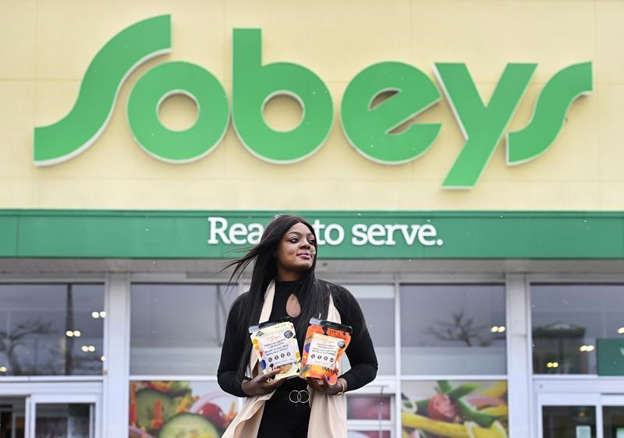
Dr. Sylvain Charlebois, a visiting scholar at McGill University and perhaps better known as the Food Professor, has lamented a strange and growing trend among Canadians. It seems that large numbers of especially younger people would prefer a world where grocery chains and food producers operated as non-profits and, ideally, were owned by governments.
Sure, some of them have probably heard stories about the empty shelves and rationing in Soviet-era food stores. But that’s just because “real” communism has never been tried.
In a slightly different context, University of Toronto Professor Joseph Heath recently responded to an adjacent (and popular) belief that there’s no reason we can’t grow all our food in publicly-owned farms right on our city streets and parks:
“Unfortunately, they do have answers, and anyone who stops to think for a minute will know what they are. It’s not difficult to calculate the amount of agricultural land that is required to support the population of a large urban area (such as Tokyo, where Saitō lives). All of the farms in Japan combined produce only enough food to sustain 38% of the Japanese population. This is all so obvious that it feels stupid even to be pointing it out.”
Sure, food prices have been rising. Here’s a screenshot from Statistics Canada’s Consumer Price Index price trends page. As you can see, the 12-month percentage change of the food component of the CPI is currently at 3.4 percent. That’s kind of inseparable from inflation.

But it’s just possible that there’s more going on here than greedy corporate price gouging.
It should be obvious that grocery retailers are subject to volatile supply chain costs. According to Statistics Canada, as of June 2025, for example, the price of “livestock and animal products” had increased by 130 percent over their 2007 prices. And “crops” saw a 67 percent increase over that same period. Grocers also have to lay out for higher packaging material costs that include an extra 35 percent (since 2021) for “foam products for packaging” and 78 percent more for “paperboard containers”.
In the years since 2012, farmers themselves had to deal with 49 percent growth in “commercial seed and plant” prices, 46 percent increases in the cost of production insurance, and a near-tripling of the cost of live cattle.
So should we conclude that Big Grocery is basically an industry whose profits are held to a barely sustainable minimum by macro economic events far beyond their control? Well that’s pretty much what the Retail Council of Canada (RCC) claims. Back in 2023, Competition Bureau Canada published a lengthy response from the RCC to the consultation on the Market study of retail grocery.
The piece made a compelling argument that food sales deliver razor-thin profit margins which are balanced by the sale of more lucrative non-food products like cosmetics.
However, things may not be quite as simple as the RCC presents them. For instance:
- While it’s true that the large number of supermarket chains in Canada suggests there’s little concentration in the sector, the fact is that most independents buy their stock as wholesale from the largest companies.
- The report pointed to Costco and Walmart as proof that new competitors can easily enter the market, but those decades-old well-financed expansions prove little about the way the modern market works. And online grocery shopping in Canada is still far from established.
- Consolidated reporting methods would make it hard to substantiate some of the report’s claims of ultra-thin profit margins on food.
- The fact that grocers are passing on costs selectively through promotional strategies, private-label pricing, and shrinkflation adjustments suggests that they retain at least some control over their supplier costs.
- The claim that Canada’s food price inflation is more or less the same as in other peer countries was true in 2022. But we’ve since seen higher inflation here than, for instance, in the U.S.
Nevertheless, there’s vanishingly little evidence to support claims of outright price gouging. Rising supply chain costs are real and even high-end estimates of Loblaw, Metro, and Sobeys net profit margins are in the two to five percent range. That’s hardly robber baron territory.
What probably is happening is some opportunistic margin-taking through various selective pricing strategies. And at least some price collusion has been confirmed.
How much might such measures have cost the average Canadian family? A reasonable estimate places the figure at between $150 and $350 a year. That’s real money, but it’s hardly enough to justify gutting the entire free market in favor of some suicidal system of central planning and control.
Business
The Grocery Greed Myth

Haultain’s Substack is a reader-supported publication.
To receive new posts and support our work, please consider becoming a free or paid subscriber.
Try it out.
The Justin Trudeau and Jagmeet Singh charges of “greedflation” collapses under scrutiny.
“It’s not okay that our biggest grocery stores are making record profits while Canadians are struggling to put food on the table.” —PM Justin Trudeau, September 13, 2023.
A couple of days after the above statement, the then-prime minister and his government continued a campaign to blame rising food prices on grocery retailers.
The line Justin Trudeau delivered in September 2023, triggered a week of political theatre. It also handed his innovation minister, François-Philippe Champagne, a ready-made role: defender of the common shopper against supposed corporate greed. The grocery price problem would be fixed by Thanksgiving that year. That was two years ago. Remember the promise?
But as Ian Madsen of the Frontier Centre for Public Policy has shown, the numbers tell a different story. Canada’s major grocers have not been posting “record profits.” They have been inching forward in a highly competitive, capital-intensive sector. Madsen’s analysis of industry profit margins shows this clearly.
Take Loblaw. Its EBITDA margin (earnings before interest, taxes, depreciation, and amortization) averaged 11.2 per cent over the three years ending 2024. That is up slightly from 10 per cent pre-COVID. Empire grew from 3.9 to 7.6 per cent. Metro went from 7.6 to 9.6. These are steady trends, not windfalls. As Madsen rightly points out, margins like these often reflect consolidation, automation, and long-term investment.
Meanwhile, inflation tells its own story. From March 2020 to March 2024, Canada’s money supply rose by 36 per cent. Consumer prices climbed about 20 per cent in the same window. That disparity suggests grocers helped absorb inflationary pressure rather than drive it. The Justin Trudeau and Jagmeet Singh charges of “greedflation” collapses under scrutiny.
Yet Ottawa pressed ahead with its chosen solution: the Grocery Code of Conduct. It was crafted in the wake of pandemic disruptions and billed as a tool for fairness. In practice, it is a voluntary framework with no enforcement and no teeth. The dispute resolution process will not function until 2026. Key terms remain undefined. Suppliers are told they can expect “reasonable substantiation” for sudden changes in demand. They are not told what that means. But food inflation remains.
This ambiguity helps no one. Large suppliers will continue to settle matters privately. Small ones, facing the threat of lost shelf space, may feel forced to absorb losses quietly. As Madsen observes, the Code is unlikely to change much for those it claims to protect.
What it does serve is a narrative. It lets the government appear responsive while avoiding accountability. It shifts attention away from the structural causes of price increases: central bank expansion, regulatory overload, and federal spending. Instead of owning the crisis, the state points to a scapegoat.
This method is not new. The Trudeau government, of which Carney’s is a continuation, has always shown a tendency to favour symbolism over substance. Its approach to identity politics follows the same pattern. Policies are announced with fanfare, dissent is painted as bigotry, and inconvenient facts are set aside.
The Grocery Code fits this model. It is not a policy grounded in need or economic logic. It is a ritual. It gives the illusion of action. It casts grocers as villains. It gives the impression to the uncaring public that the government is “providing solutions,” and that “it has their backs.” It flatters the state.
Madsen’s work cuts through that illusion. It reminds us that grocery margins are modest, inflation was monetary, and the public is being sold a story.
Canadians deserve better than fables, but they keep voting for the same folks. They don’t think to think that they deserve a government that governs within its limits; a government that accept its role in the crises it helped cause, and restores the conditions for genuine economic freedom. The Grocery Code is not a step in that direction. It was always a distraction, wrapped in a moral pose.
And like most moral poses in Ottawa, it leaves the facts behind.
Haultain’s Substack is a reader-supported publication.
To receive new posts and support our work, please consider becoming a free or paid subscriber.
Try it out.
-

 Business1 day ago
Business1 day agoThe Grocery Greed Myth
-
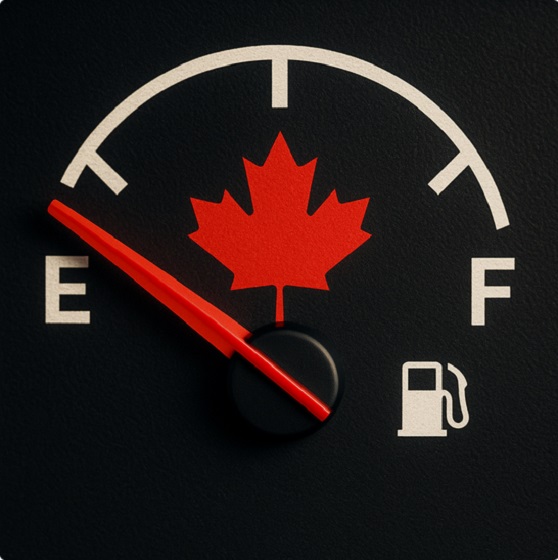
 Frontier Centre for Public Policy8 hours ago
Frontier Centre for Public Policy8 hours agoCanada’s Democracy Is Running On Fumes
-
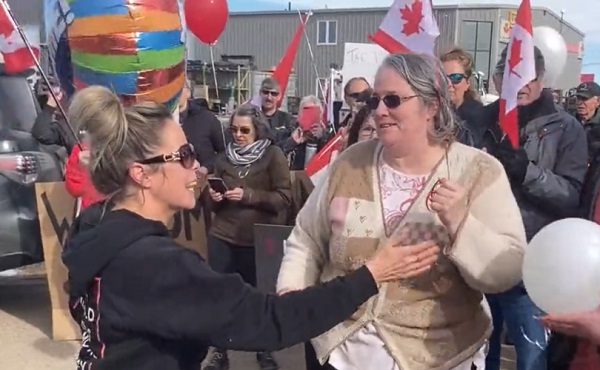
 COVID-192 days ago
COVID-192 days agoTamara Lich says she has no ‘remorse,’ no reason to apologize for leading Freedom Convoy
-

 Crime2 days ago
Crime2 days agoCanada’s safety minister says he has not met with any members of damaged or destroyed churches
-
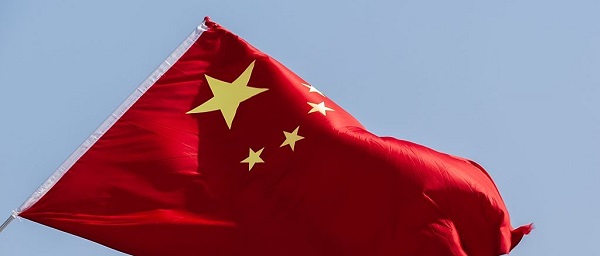
 Business2 days ago
Business2 days agoTrump Warns Beijing Of ‘Countermeasures’ As China Tightens Grip On Critical Resources
-

 International2 days ago
International2 days agoTrump gets an honourable mention: Nobel winner dedicates peace prize to Trump
-

 Business1 day ago
Business1 day agoTax filing announcement shows consultation was a sham
-

 Business9 hours ago
Business9 hours agoYour $350 Grocery Question: Gouging or Economics?







